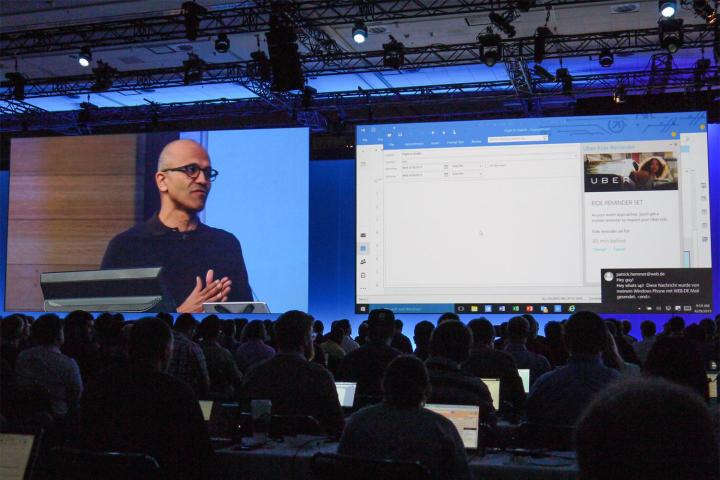
For the first time, companies other than Microsoft can develop extensions into Office. Examples demonstrated on stage indicate that this could mark a huge advance in Office’s capabilities. One such example showed a DocuSign authentication panel embedded into a Word document. A similar add-in gives users access to PicHit.me picture libraries from within PowerPoint, as they’re building a presentation. That’s the sort of integration Microsoft seems to be chasing, saving users from switching to another application when there could be a simple add-in to circumvent it.
Outlook demonstrated an Uber add-in, where you could set a reminder to book a cab that would push notifications to your phone. When that notification appears, a simple swipe books the service — Uber could grab the destination from the initial email automatically.
These add-ins will work across all versions of Office, whether they’re running in-browser or even on an iPad. The suggestion was made that add-ins will eventually reach beyond Office, although it’s unclear whether that means the functionality could crop up in Project Spartan or even be worked into the Windows OS.
Following these demos, Office Extensibility General Manager Rob Lefferts covered some of the tools developers will be able to use to take advantage of these new Office features. A preview of the Office API tool is scheduled to release later this week.

